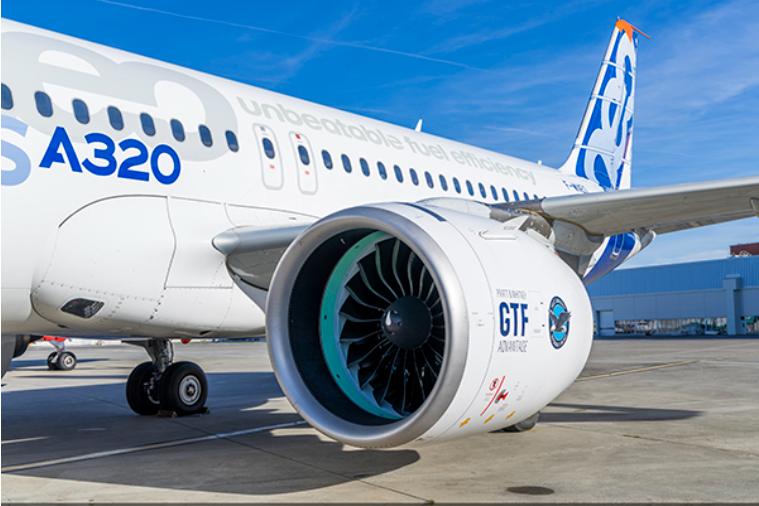RTX, parent company of aero engine manufacturer Pratt & Whitney (P&W), has reported sales of $68.9bn for the full year 2023, up 3% from 2022, but something which the company says reflects ‘the impact of the previously disclosed Pratt powder metal matter’. This issue with GTF engine components (where defective powder metal is potentially compromising high-pressure turbine discs produced by the company) has also affected RTX’s GAAP EPS for 2023, which is down 36% from the previous year at $2.23.
Pratt & Whitney (one of RTX’s three subsidiaries) produces PW1100 geared turbofan (GTF) engines for commercial applications including the A320neo family, the A220 and the Embraer E-Jet E2. In September 2023, RTX released an inspection plan for what it terms ‘risks relating to addressing the identified rare condition in powder metal used to manufacture certain Pratt & Whitney engine parts requiring accelerated removals and inspections of a significant portion of PW1100G-JM GTF fleet’.
Pratt & Whitney reported an operating loss margin of -8% in 2023 (adjusted to 7.1%). 2022’s figures indicated an operating profit of 5.2%, adjusted to 6.1%. Before adjustment, Pratt & Whitney was the only RTX subsidiary to make a loss. Referencing this adjusted profit margin, the powder metal charge is listed as having cost Pratt & Whitney $5,401 million in lost sales.
'Total net significant and/or non-recurring items…. 2023 includes a net pre-tax charge of $2.9 billion related to the Pratt powder metal matter during the third quarter of 2023,’ confirms RTX. However, it adds that the $5.4 billion was ‘was partially offset by a net reduction of cost of sales of $2.5 billion primarily representing our partners’ 49% share of this charge’.
‘Management has determined that these items are directly attributable to the power metal matter… and not expected to recur, and therefore, not indicative of the company’s ongoing operational performance,’ stated RTX.
Incoming chief executive Chris Calio, who takes over at the helm of RTX on May 2, led an investor call on January23 where he commented that the company was continuing to prioritise its fleet management plan for affected GTF engines. He further confirmed: "Today, all OE GTF engines being delivered to our customers final assembly lines contain disks produced from powdered metal manufactured after Q3 2021 and have full certified lives." Calio went on to inform investors that the GTF MRO shops had begun to install full life disks on impacted engines, the number of which he said would "increase throughout the year" as production is ramped up on the necessary parts. "Pratt grew GTF MRO output by almost 30% year-over-year in 2023, while also making investments in additional shops, test cell capacity, and repair capability to support even more growth in 2024," said Calio.
P&W continues to predict an average of 350 aircraft on ground (AOGs) but added that the peak would likely be lower than anticipated due to the "timing of the AD issuance and proactive fleet management by our customers". Calio added that the company had finalised several customer support agreements "in line with the assumptions" outlined in September last year and that the company was continuing conversations with others.
